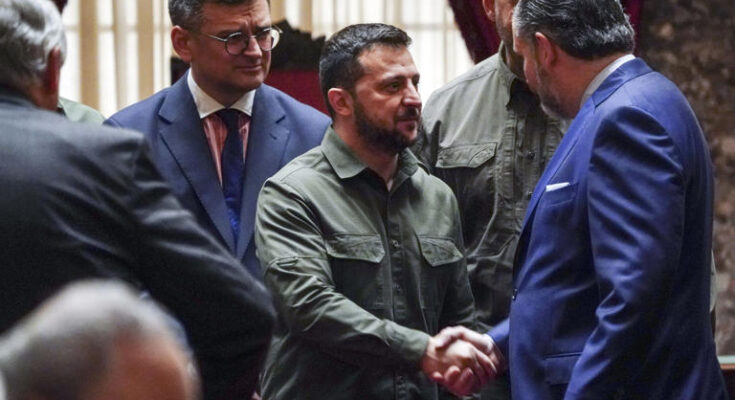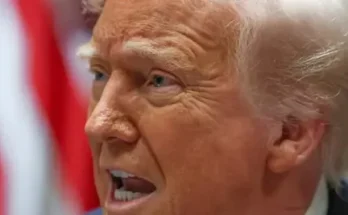Ukrainian President Volodymyr Zelenskyy faced heavy criticism during a recent White House meeting with President Donald Trump. The meeting ended abruptly, with President Zelenskyy leaving without signing a proposed U.S.-Ukraine minerals deal. Former Polish President Lech Wałęsa and dozens others condemned Trump’s actions, comparing it to coercive tactics used by communist-era regimes in Eastern Europe.
Following the meeting, Trump wrote, “[Zelenskyy] doesn’t want there to be Peace as long as he has America’s backing and, Europe, in the meeting they had with Zelenskyy, stated flatly that they cannot do the job without the U.S. – Probably not a great statement to have been made in terms of a show of strength against Russia. What are they thinking?”
Wałęsa stated, “Prosecutors and judges, commissioned by the omnipotent communist political police, also explained to us that they had all the cards in their hands, and we had none. We are shocked that you treated President Volodymyr Zelenskyy in a similar way.”
Zelenskyy has shifted his strategy after discussions with Prime Minister Keir Starmer and President Emmanuel Macron, quickly adopting a tone of gratitude.
Chairman of the Foreign Affairs Committee in Ukraine’s Parliament Oleksandr Merezhko said, “I think that Zelenskyy has realized that he needs to change his tactics with regard to Trump in accordance with Trump’s worldview. In Machiavellian terms, if you are not a lion in politics, like Trump, you have to be a fox.”
Merezhko added, “That was something other world leaders have taken to heart and that Zelenskyy has struggled to adjust to. To get Trump’s support, you need to behave as if you are under his protection and he is the Godfather whom you admire and look up to. Trump doesn’t stand those who try to behave as if they are equal to him.”
Trump’s alignment with Moscow’s interests have raised concerns in Ukraine and Europe over the implications for future negotiations. Former Ukrainian foreign minister Vadym Prystaiko wrote, “If we know he is under Russian influence, do we have a chance to break this influence?”
Prystaiko added, “So how do we do it? What methods do we use — culture, art, personal connections, public messaging, and so on? If we fail, what’s our second option? We act knowing that this is what he thinks.”


